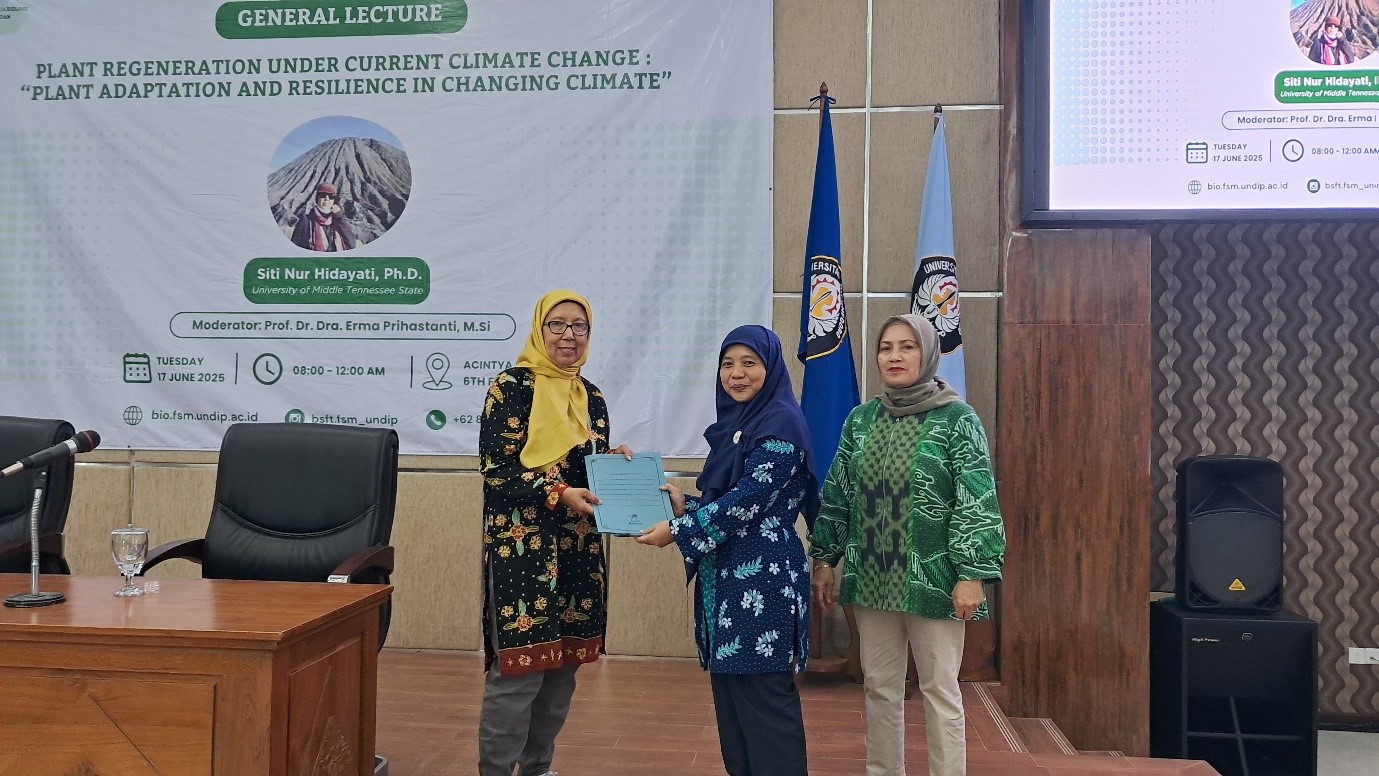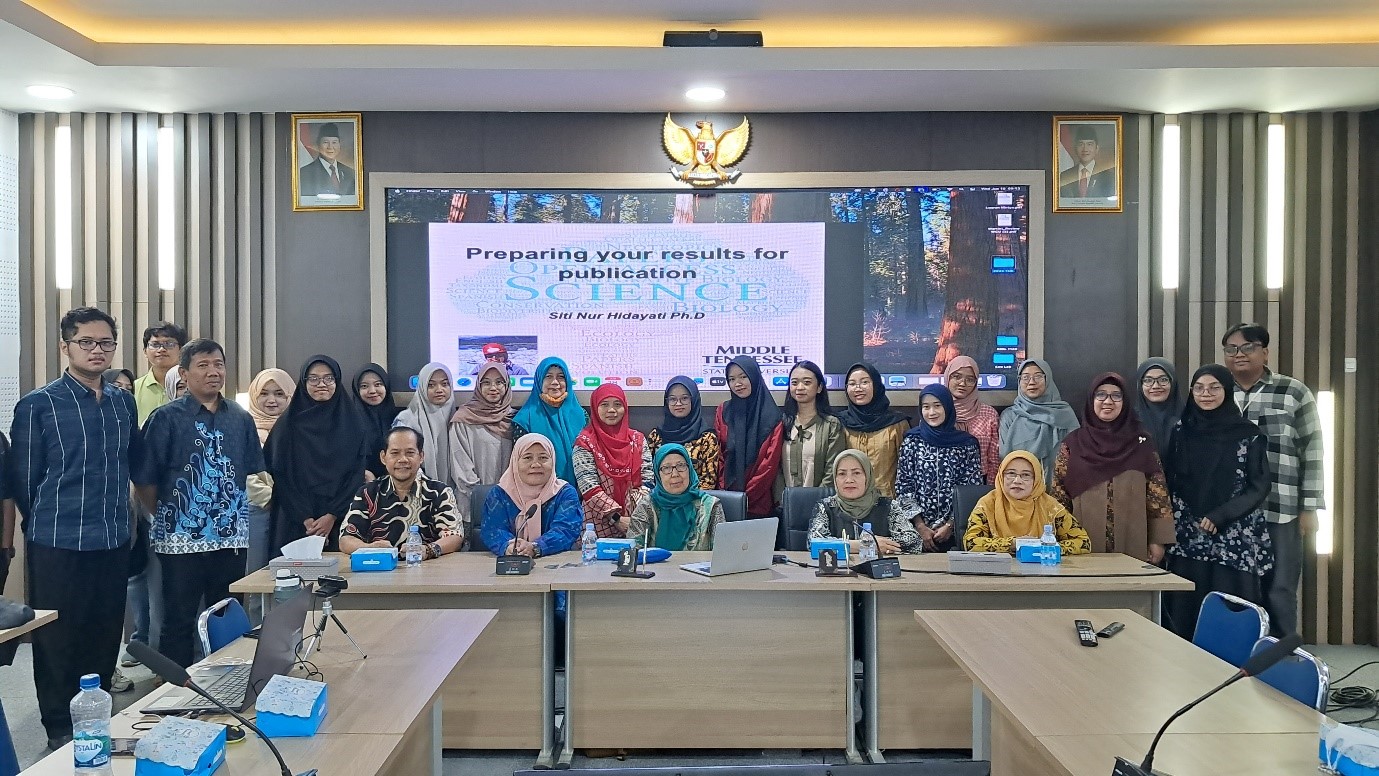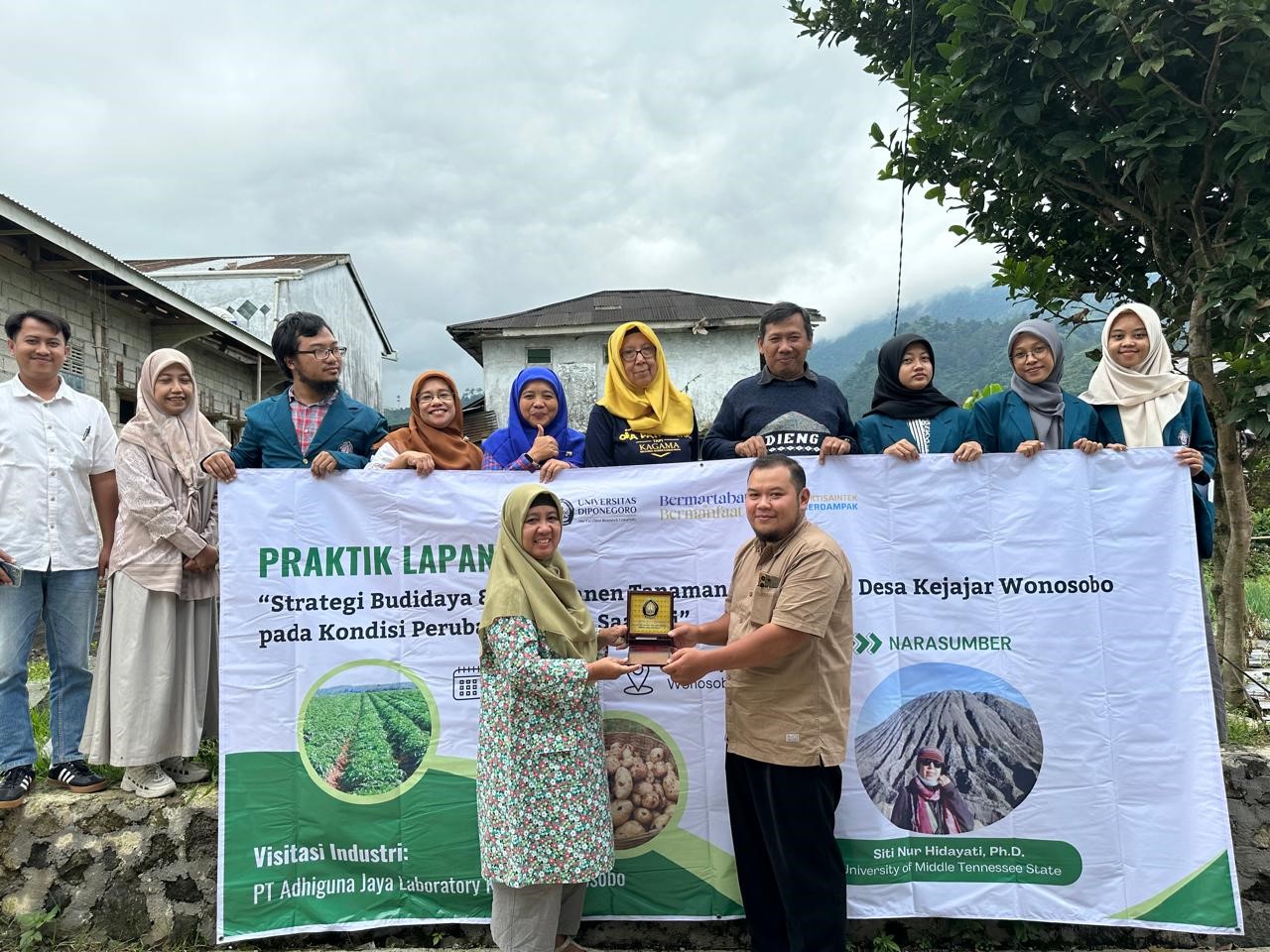The Undergraduate Biology Program of the Faculty of Science and Mathematics, Diponegoro University (FSM UNDIP), reaffirmed its commitment to becoming a World Class University through the organization of an offline international Visiting Lecturer program. This prestigious event featured Indonesian diaspora researcher Siti Nur Hidayati, Ph.D., currently based at Middle Tennessee State University, USA.

The series commenced on Tuesday, June 17, 2025, with a general lecture titled “Plant Regeneration Under Current Climate Change.” Attended by over 100 participants from various institutions, the lecture explored how plants adapt, survive, and regenerate amidst the growing challenges of global climate change. Dr. Siti Nur Hidayati delivered a compelling presentation, followed by an engaging and interactive discussion that reflected the high level of interest in climate issues and plant biotechnology.

The following day, Wednesday, June 18, 2025, an exclusive workshop was held under the theme “Tips & Tricks for Reputable International Publications: Preparing Your Results for Publication.” A total of 50 selected participants took part in this in-depth session, which covered practical strategies for publishing in reputable international journals — from building a strong scientific narrative to understanding the preferences of global editors.

To conclude the program, on Thursday, June 19, 2025, participants and the guest lecturer joined a field visit to Kejajar Village, Wonosobo, for a training session titled “Potato Cultivation & Post-Harvest Strategies Amid Current Climate Change.” In this activity, 15 participants gained hands-on experience in comparing local farming practices with scientific approaches to highland potato cultivation.
The entire program was led by Dr. Endang Saptiningsih, M.Si., who emphasized that this initiative not only enriched the international academic environment at FSM UNDIP but also bridged biology with real community needs. “Through this program, we aim to show that science is not just confined to laboratories, but plays a key role in helping communities face real-world challenges like climate change,” she stated.
FSM UNDIP remains committed to fostering impactful and relevant international collaborations, proving that science can transcend borders in the pursuit of a more sustainable future.

